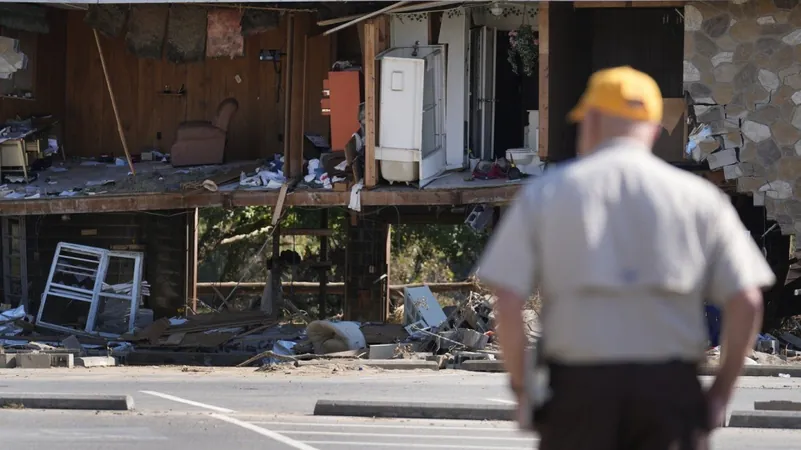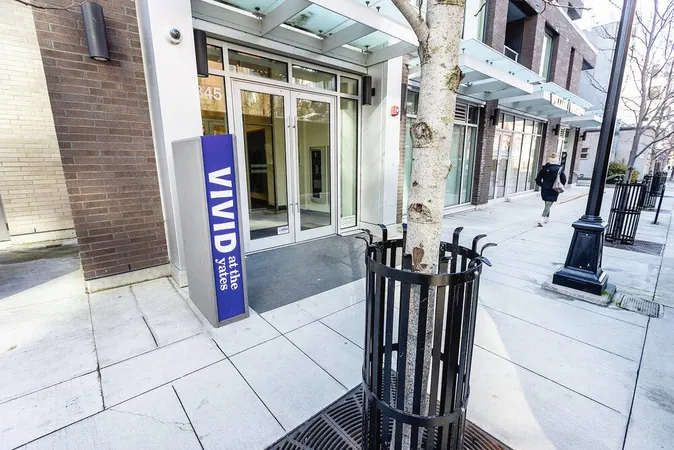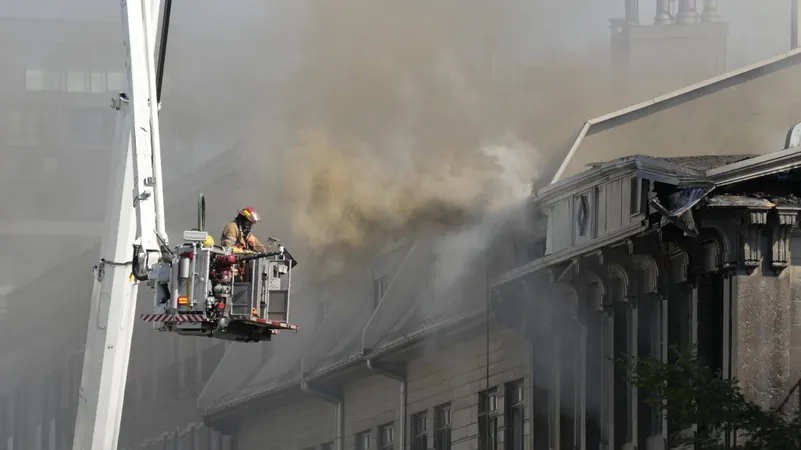
Shocking Figures: Over 3,661 Lives Lost to Haiti's Rampant Gang Violence – UN Calls for Urgent Action
2024-09-27
Shocking Figures: Over 3,661 Lives Lost to Haiti's Rampant Gang Violence – UN Calls for Urgent Action
In a devastating report, the United Nations revealed that at least 3,661 individuals have been killed in Haiti due to rampant gang violence in the first half of this year alone. Among the casualties are at least 100 children, further underscoring the tragic toll this chaos has extracted from the nation. UN rights chief Volker Turk condemned the violence as "senseless," asserting that no more lives should fall victim to such criminality.
Haiti has long been plagued by political instability and insecurity, with powerful armed groups battling for turf. These gangs often maintain disturbing ties to the country’s political and business elite, allowing them to wield significant influence. The situation intensified dramatically at the end of February when gangs launched coordinated assaults on prisons and other state institutions in the capital, Port-au-Prince.
The UN's Office of the High Commissioner for Human Rights (OHCHR) documented serious human rights violations occurring predominantly in Port-au-Prince and the Artibonite Department, with violence also erupting in previously stable areas of the country’s southern West Department. The report further revealed the horrific use of sexual violence as a tactic for punishing and instilling fear in the population.
A rampant arms trade, largely originating from the United States and supplemented by trafficking from the Dominican Republic and Jamaica, has significantly empowered these gangs. The OHCHR highlighted the inadequately monitored borders and airspace that allow groups to acquire high-caliber weapons, drones, and an alarming supply of ammunition.
In light of the escalating violence, Turk has urged the international community to impose a global arms embargo, alongside travel bans and asset freezes targeting those fueling the unrest. The recent surge in violence has resulted in political upheaval, including the resignation of Haiti’s unelected prime minister and the establishment of a transitional presidential council.
In response to the chaos, a UN-backed, Kenya-led multinational force known as the Multinational Security Support Mission (MSS) has been proposed. Although around 10 nations have pledged a total of 3,100 troops to the mission, only about 430 have arrived on the ground thus far. The MSS's mandate is approaching its one-year mark, with the UN Security Council set to vote on its renewal on September 30.
Haiti has called upon the UN to transition this mission into a formal peacekeeping operation to ensure steady funding and enhanced capabilities. Turk emphasized the urgent need for the mission to be equipped with adequate personnel and resources to effectively combat the pervasive threat of gang violence.
During the recent UN General Assembly in New York, Haiti's interim prime minister, Garry Conille, fervently appealed for international support, highlighting that victory against the gangs would remain elusive without global assistance. Compounding the crisis, the number of internally displaced individuals has nearly doubled in the last six months, reaching over 700,000, while an alarming 1.6 million people are estimated to be facing severe food insecurity.
As Haiti grapples with this crisis, the international community faces a moral imperative to intervene and restore stability to a nation on the brink of collapse. Will the world respond in time, or will 2023 be remembered as another tragic chapter in Haiti’s tumultuous history?









 Brasil (PT)
Brasil (PT)
 Canada (EN)
Canada (EN)
 Chile (ES)
Chile (ES)
 España (ES)
España (ES)
 France (FR)
France (FR)
 Hong Kong (EN)
Hong Kong (EN)
 Italia (IT)
Italia (IT)
 日本 (JA)
日本 (JA)
 Magyarország (HU)
Magyarország (HU)
 Norge (NO)
Norge (NO)
 Polska (PL)
Polska (PL)
 Schweiz (DE)
Schweiz (DE)
 Singapore (EN)
Singapore (EN)
 Sverige (SV)
Sverige (SV)
 Suomi (FI)
Suomi (FI)
 Türkiye (TR)
Türkiye (TR)